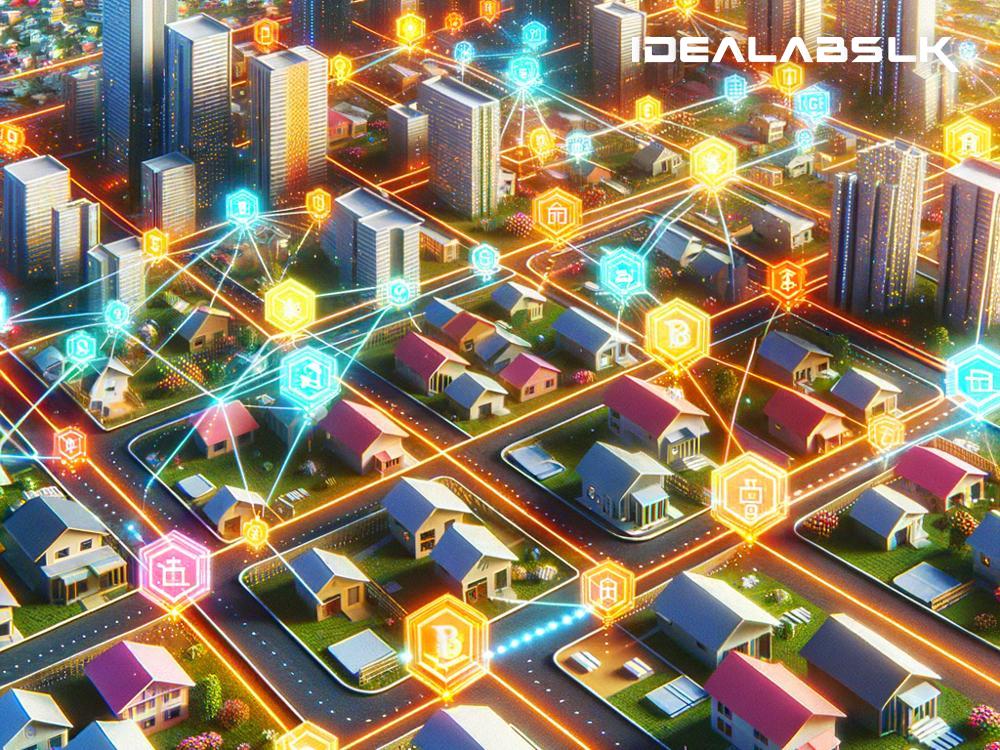Title: Simplifying Real Estate Asset Management with Blockchain
In today's rapidly evolving digital era, the real estate sector continues to seek innovative solutions to streamline processes, enhance security, and improve transparency. Enter blockchain, a groundbreaking technology, that's not just the backbone of cryptocurrencies like Bitcoin, but also a promising solution for real estate asset management. But what exactly is blockchain, and how can it revolutionize the real estate industry? Let's break it down into simpler terms.
What is Blockchain?
Imagine a digital ledger that's shared among a network of computers. This ledger records transactions in blocks, and once a block is filled with data, it's chained to the previous one, thus forming a blockchain. Each block is tamper-evident and secure, which means altering any information would require altering all subsequent blocks and the consensus of the network, making it nearly impossible to hack. This decentralized, secure, and transparent way of recording transactions is what makes blockchain a game-changer for various industries, including real estate.
Challenges in Traditional Real Estate Asset Management
Managing real estate assets traditionally involves a plethora of paperwork, from titles and deeds to transaction records and property management agreements. This process is not only time-consuming but also prone to human errors, fraud, and inefficiencies. Moreover, the lack of transparency can lead to disputes among stakeholders, while centralized record-keeping poses security risks.
Blockchain to the Rescue
Blockchain offers a compelling solution to address these challenges in real estate asset management. Here’s how:
-
Enhanced Transparency: With blockchain, all transactions are recorded on a shared ledger that is accessible to all parties involved but cannot be altered without consensus. This means stakeholders can view transaction histories in real-time, ensuring transparency and trust.
-
Improved Efficiency: By digitizing records and using smart contracts (self-executing contracts with the terms directly written into code), blockchain eliminates the need for intermediaries like lawyers and brokers during transactions. This speeds up processes and cuts down costs.
-
Increased Security: The decentralized and cryptographic nature of blockchain makes it nearly impossible to hack or manipulate data. This significantly reduces the risk of fraud and unauthorized access to sensitive information.
-
Better Accessibility: Blockchain enables the tokenization of real estate assets, breaking them down into digital shares that can be easily bought and sold. This opens up investment opportunities to a wider audience, including those who might not have the resources to invest in real estate directly.
Real-world Applications
-
Land Registry and Title Management: Countries like Sweden and Georgia are already exploring blockchain for land registry. This can eradicate title fraud, speed up transactions, and reduce costs.
-
Investment and Fundraising: Platforms like RealT allow investors to purchase tokenized shares of properties, enabling easier access to real estate investment and attracting a global investor pool.
-
Lease Management: Smart contracts can automate the leasing process, from verifying tenant eligibility to executing lease agreements and processing payments, making the task less cumbersome for property managers.
-
Supply Chain Transparency: In property construction, blockchain can track materials from origin to installation, ensuring quality, reducing delays, and preventing cost overruns.
Looking Ahead
While the adoption of blockchain in real estate promises numerous benefits, it's not without challenges. Regulatory hurdles, interoperability between different blockchain systems, and the digital divide are some of the obstacles that need to be addressed. However, as technology matures and awareness grows, the potential of blockchain to revolutionize real estate asset management becomes increasingly clear.
In essence, blockchain stands as a beacon of hope for the real estate industry, promising a future where transactions are more secure, efficient, and transparent. This not only benefits property owners and investors but also makes real estate more accessible to the general public. As we continue to navigate this digital transformation, embracing technologies like blockchain could be key to unlocking a new era of real estate asset management.

